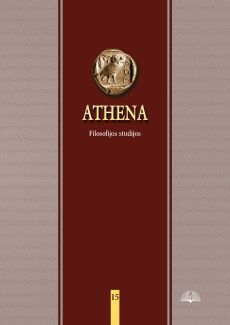Organizing Fantasies: The Ideology of Late Capitalism
Organizing Fantasies: The Ideology of Late Capitalism
Author(s): Andrei GornykhSubject(s): Media studies, Political Philosophy, Labor relations, Government/Political systems, Crowd Psychology: Mass phenomena and political interactions
Published by: Lietuvos kultūros tyrimų
Keywords: ideological fantasy; money; media; commodity fetishism; abstract labour; object of desire (“object a”); Ego strengthening;
Summary/Abstract: The article analyses the deep social logic of late capitalism that shapes media “surface”. This logic extends the field of media and merges it with the retail merchandising and loan sharking space. The ideological fantasy is considered to be not the “false consciousness” but “objective appearance” or “real abstraction”. It means that money, which is in the core of this ideological fantasy, cannot be conceived just as a convenient means of payment or accumulation, but one has to grasp it in its mystical, fantastical function in the everyday life. This is what the phenomenon of commodity fetishism is about: the specific characteristics of a commodity (use value) appear as a manifestation of its abstract universality (exchange value). The fetishist function of money as the commodity of commodities consists in its being the embodiment of this principle of social fragmentation and abstraction (alienation). But it is in this capacity that it serves as the main guarantor of the imaginary, the ideological integrity of the entire System and individual as a strong Ego in the last resort. The abstract labour as a principle that determines how individuals are positioned in the System (their place on the market and conditions of selling of their working time) can function on the basis of its ideological misrecognition: the individual does not recognize this reality by means of consumerist vision of commodities as mirrors of the ideal self. Moreover, this can help to shed light on the source of the surplus enjoyment of consumption. Consumption is a system of fetishism based on the exploitation of Lacanian object “a”. It means that every commodity has potential energy, which one can reveal, use with the help of money (to “consume”). Each product has become a certain type of “labour force” one buys being far from the capitalist in the classical sense of the word. Purchase means investment. “Having bought” goods, one receives “something more”, some surplus pleasure without the hard work of exploitation - the pure power of domination over the other as appropriated abstract labour. Finally, article argues that this predicament leads to the exhaustion of the “energy” of desire. Today, the new message of the Other urges us: “save money and money will save you” (instead of: “find your happiness, love, joy in the commodity”).
Journal: Athena: filosofijos studijos
- Issue Year: 2020
- Issue No: 15
- Page Range: 199-219
- Page Count: 21
- Language: English

